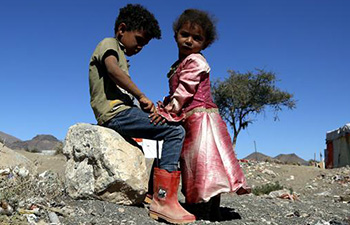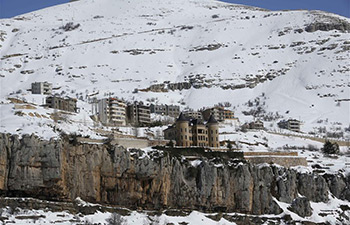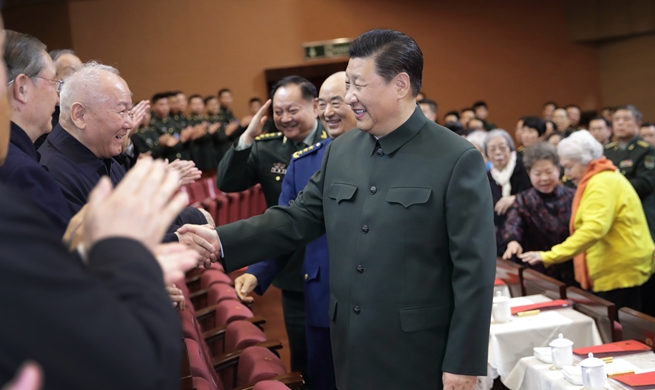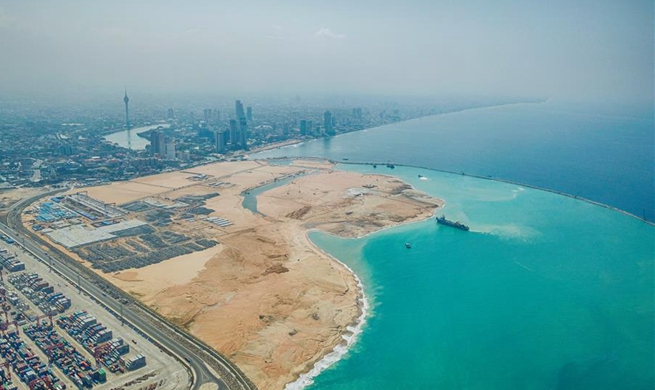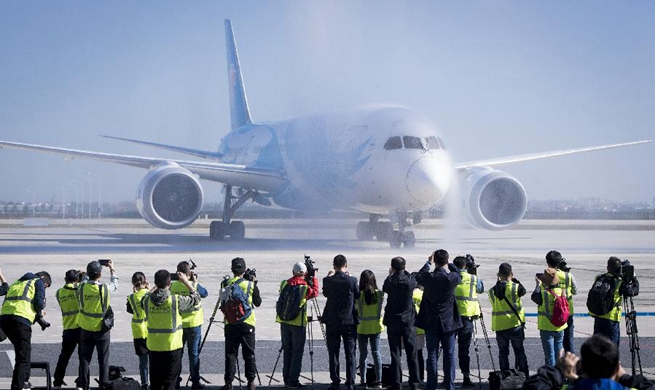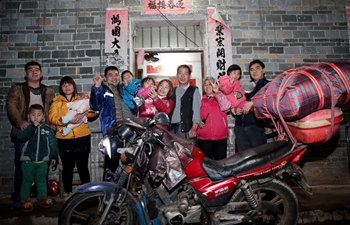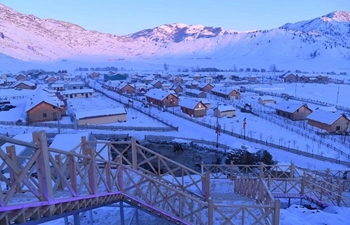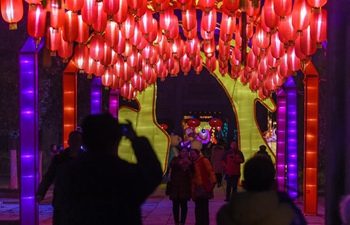ROME, Jan. 23 (Xinhua) -- An ambitious high-speed rail project designed to help draw two of Europe's biggest countries closer is instead revealing divisions within Italy's eight-month-old government.
The planned rail link between the northern Italian industrial city of Turin and the eastern French city of Lyon is part of a larger plan that will cross Europe with rail lines as a way to reduce transportation costs and fossil fuel use. The 270-kilometer line would include a 58-kilometer tunnel under the Alps mountain range, one of the longest tunnels in the world. Trains will run at an average speed of 220 kilometers per hour.
According to Italian media reports, around one-seventh of the tunnel is complete, with drilling machines progressing at the rate of around 12 to 15 meters per day.
The project has been in development for generations. Turin and Lyon were first linked by rail via a mountain route opened in 1872. The line has been improved regularly, most recently in 2011, but topography still limits speed and weight loads. Plans for a high-speed alternative date back more than a quarter century.
"This project has very deep roots, with initial plans drawn up in the early 1990s," Nicola Pasina, a political scientist at the University of Milan, told Xinhua. "There are many benefits to it, including making trade more efficient and cheaper, opening new markets in both countries and beyond, plus the environmental and health benefits of having fewer heavy trucks on the roads."
But now the 25 billion-euro (28.5 billion U.S. dollar) project is at risk due to the conflicting stances of the two parties backing the Italian government of Prime Minister Giuseppe Conte, which has been in power since June 2018.
The nationalist League is in favor of the project, though some officials have said that Italy should rethink its financial obligation to it. The anti-establishment Five Star Movement, on the other hand, is against major public works projects in general, believing they can be breading grounds for corruption.
According to a recent poll conducted by the survey company SWG, around 6 in 10 supporters of the League backed the project, while less than half that percentage of Five Star Movement's supporters held the same view. Overall, a little more than half of all Italians back the idea.
Major protests both against and in favor of the project have been held in Turin in recent weeks.
"Some leaders in the government say the costs of the project are higher than the benefits," Stefano Cianciotta, president of the National Observatory on Infrastructure, told Xinhua. "Most observers disagree. But even if it were true it would be very difficult to find a good way to back out of a project like this once it has started."
Cianciotta said Italy has already paid around half of the 3 billion euros it promised to pay to offset the costs of the tunnel. In Italy, previous governments agreed to bear 35 percent of the 8.6 billion euro cost of the tunnel. France will pay 25 percent of the cost, with the European Union underwriting the remaining 40 percent. The Italian share is larger than that of France because more of the project is on Italian territory.
Complicating things further are a series of high-profile clashes with France in recent months, ranging from name calling between the leaders of both countries to political disagreements over everything from humanitarian issues like migrant policies to cultural topics over which country should celebrate the 500-year anniversary of the death of Renaissance master Leonardo da Vinci. Few expect the tensions to drop significantly before the European Parliament elections in May.(1 euro = 1.14 U.S. dollar)

